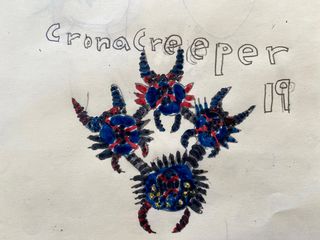Health
The Revolution Will Not Be Televised
Reflections on two weeks of public health practice.
Posted March 29, 2020

At my university, like many leading academic institutions, it is hard to quantify how much more research and “discovery” is valued over "praxis," at least when it comes to what being a "successful" professor entails.
To be fair, my university has many initiatives regarding “public engagement with science" which I greatly welcome and support. Indeed, when Psychology Today asked me if I would like to blog for them, I felt this would be a way for me to Demonstrate My Value (that’s for all you fellow Always Sunny fans) "outside the ivory tower" by engaging in public discussions about how the sausage is made when it comes to the scientific understanding of human health. I wanted to write posts that I wish had existed when I was solely a consumer of health research, in the hopes that such a forum would support public health in action out in the “real world.”
Of course, the past two weeks have been a crash course in public health praxis. While the scope of the problem is new, the players are the same. Anyone who has experienced, or has had a loved one experience, a serious medical problem knows the inextricable link between health and finances, and this crisis has made plain the macro-level equivalent of population health and economic stability. Of course, just like the situation of individuals in health crises, much of the economic fallout of this pandemic is not due to the layoffs and furloughs themselves: it is due to the anxiety and uncertainty of not knowing when the pressure will release, when the pain will peak.
As someone who has experience with cancer, I can tell you that the worst time, mentally, was the period between knowing I had cancer and learning from my medical team what the treatment plan was going to be: How intense? For how long? At what cost?
These are the questions that our leaders at the NIH and CDC are being asked (and are asking themselves) on a daily basis, but don’t be mistaken: These are not new questions. They are intrinsic to any health crisis, whether that crisis affects n=1 or n=330,000,000.
This pandemic has hardened my belief that our nation would greatly benefit from a fundamental change in how we think about science, statistics, policy, and citizenship. These four elements are fundamentally linked: We say we want “evidence-based” (science + statistics) policies, but those policies require an engaged civic society that knows the difference between evidence and claims. That kind of knowledge is hard to come by, particularly in a society where we have few opportunities to meaningfully engage with people about hard problems that don’t have clear net-beneficial solutions.
This pandemic is interesting — and frightening — because society is watching it occur in real time. Every afternoon, my state (Michigan) provides an update on the number of tests, the number of cases, and the number of deaths by county. It shows that the burden of this illness is not being borne equally: It is disproportionately affecting those who have less (whether in terms of less autonomy because they are living in a long-term care facility, or less financial resources to be able to social distance effectively, or a less robust immune system). I suppose one could interpret the data differently, point to counter-examples, but I don’t find that persuasive because I know that every mean has variation. Exceptions don’t negate the rule: that is why they are exceptions and not the rule.
I named this post after Gil Scott Heron’s 1970s poem/song “The revolution will not be televised” for a few reasons. The first line, “You will not be able to stay home, brother” implies that social change cannot happen while you are in your living room. This was undoubtedly true when he wrote this song nearly 50 years ago, and one could argue that social change without social connections is irrelevant. But the technology of 2020 has the potential to support seeds of social change from our living rooms. Additionally, when I am trying to decide what to wear to my video-conference class lectures, I find myself wondering if I have any elastic-waist pants that I have, as he states in another line, “been saving for just the right occasion.”
We are seeing how fundamentally we are connected — to each other, to social systems, to ecology, to economy — by being forced to be apart. Those connections are a strength that can be leveraged when we are able to be in the same room again, to make changes that empower and engage everyone in discussions about policies that support the health of our nation. An intellectual revolution that recognizes that we, as a society, are only as well and healthy as our most vulnerable, and that this is not a zero-sum game. Your panic-hoarding of toilet paper does not shorten the epidemic for you any more than my indulgent-consumption of Nutella does for me. We will get through this together. Only together.
References
Rawat and Meena. Publish or perish: Where are we heading? J Res Med Sci. 2014 Feb; 19(2): 87–89.
The promise of community citizen science. https://www.rand.org/content/dam/rand/pubs/perspectives/PE200/PE256/RAN…


